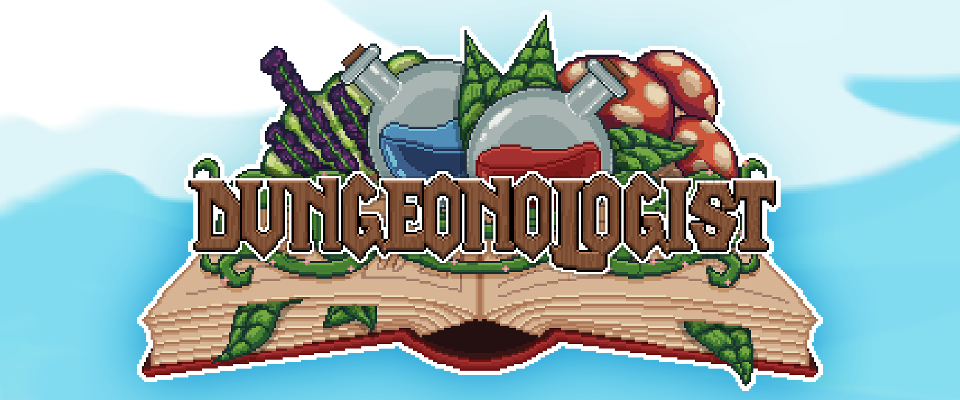Devlog 4: Post Mortem
As we wrap up development on Dungeonologist, it’s time to reflect on the process. Creating this game has been a challenging yet enlightening experience. Here’s a look at what went well, what could have gone better, and how this project has shaped our future plans (i.e. a post mortem).
Challenges of Remote Collaboration
Working remotely as a team was both a blessing and a curse. While it allowed us flexibility, it also required constant effort to stay on the same page. Burnout became a real issue, especially as deadlines approached. The lack of face-to-face interaction often made it harder to maintain motivation and momentum. As we accounted for this in our risk assessment during early development, clear communication on Discord as well as regular weekly meetings helped mitigate these challenges, but it’s a reminder that remote work requires careful planning, management and a strong commitment to the project.
Tackling a New Game Engine
Switching to Godot from Unity was both exciting and daunting. While it’s a great tool with most of the basic features you’d expect from a game engine, the lack of comprehensive documentation presented significant hurdles. Debugging and solving problems often required diving into forums and experimenting on our own. However, this also became a valuable learning experience. We’ve gained a deeper understanding of Godot’s capabilities and limitations, and how it compares to Unity. For instance:
- Godot’s node-based system made UI development intuitive but required a mindset shift for programmers accustomed to Unity’s GameObject structure.
- We love that Godot is completely free and open-source, and initially found it simple and intuitive, but we eventually found that it required additional effort to implement some features readily available in Unity.
Overall, picking up Godot for this project was a valuable learning experience, providing us with insight into the pros and cons of different game engines and how they might synergise with different types of games. However, we’re not sure any of us would choose to use Godot again in the future.
GitHub and Merge Conflicts
Version control was another significant challenge. Despite proactive measures, such as:
- Regular communication between programmers via Discord.
- Setting up webhooks in our development server to track commits and pull requests.
- Conducting regular QA tests.
We still faced frustrating merge conflicts and occasionally lost work due to miscommunication. These issues reinforced the importance of adhering to strict version control protocols and maintaining clear documentation for every change.
Designing a Tutorial
One of the most unexpected challenges was creating a tutorial that introduced systems gradually. Initially, the game allowed players to explore all mechanics from the start, aiming to evoke the tactile, puzzle-like discovery found in games like Strange Horticulture and Papers Please. However, playtesting revealed that players struggled with this approach. As a "cozy" game, the audience expected a more guided experience. Balancing this need for accessibility with the original vision of discovery required significant iteration.
While we managed to implement a tutorial with hints and visual cues, this process taught us the importance of understanding player expectations early on.
Cutting Content: The Pain of Scope Management
Perhaps the hardest decision was cutting content to meet deadlines. Features like additional expeditions, new monster enclosures for different biomes, and extended story quests all had to be shelved. These cuts were necessary to polish the core experience and focus on improving usability, but we can’t help feeling disappointed. We’re proud of what we accomplished, but we also see untapped potential in what we had to leave behind.
The Future: A Mobile Release?
Despite the challenges, Dungeonologist feels like it could be something more. The game’s cozy aesthetic and virtual pet mechanics seem well-suited for a mobile release. We’ve been exploring the idea of reimagining it as an idle or clicker game, introducing elements like resource generation and automated research. Mobile development could also open up opportunities for a wider audience, allowing us to revisit those cut features in a new format.
Final Thoughts
Working on Dungeonologist has been a challenging yet invaluable experience. It pushed us to grow as developers, solve problems creatively, and balance our vision with player expectations. While there were moments of frustration and disappointment, we’re proud of what we achieved and excited about the possibilities for the future.
Get Dungeonologist
Dungeonologist
Discover Your Inner Dungeonologist in This Cozy, Creature-Filled Adventure!
| Status | Prototype |
| Authors | breakfasteater, Octopple |
| Genre | Simulation |
| Tags | 2D, creature-collector, Fantasy, Pixel Art, Virtual Pet |
| Languages | English |
More posts
- Devlog 3: Usability vs. Vision - Lessons from Our Latest PlaytestNov 26, 2024
- Devlog 2: First Playtest - Lessons LearnedOct 23, 2024
- Devlog 1: Out of the Frying Pan into the FireOct 07, 2024

Leave a comment
Log in with itch.io to leave a comment.